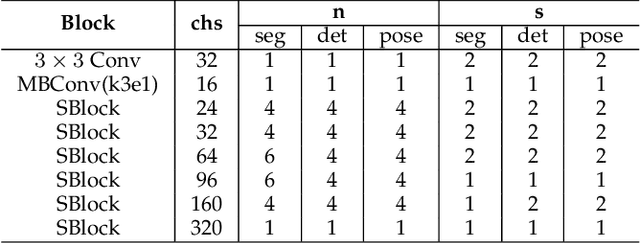FNA++: Fast Network Adaptation via Parameter Remapping and Architecture Search
Paper and Code
Jun 21, 2020



Deep neural networks achieve remarkable performance in many computer vision tasks. Most state-of-the-art (SOTA) semantic segmentation and object detection approaches reuse neural network architectures designed for image classification as the backbone, commonly pre-trained on ImageNet. However, performance gains can be achieved by designing network architectures specifically for detection and segmentation, as shown by recent neural architecture search (NAS) research for detection and segmentation. One major challenge though is that ImageNet pre-training of the search space representation (a.k.a. super network) or the searched networks incurs huge computational cost. In this paper, we propose a Fast Network Adaptation (FNA++) method, which can adapt both the architecture and parameters of a seed network (e.g. an ImageNet pre-trained network) to become a network with different depths, widths, or kernel sizes via a parameter remapping technique, making it possible to use NAS for segmentation/detection tasks a lot more efficiently. In our experiments, we conduct FNA++ on MobileNetV2 to obtain new networks for semantic segmentation, object detection, and human pose estimation that clearly outperform existing networks designed both manually and by NAS. We also implement FNA++ on ResNets and NAS networks, which demonstrates a great generalization ability. The total computation cost of FNA++ is significantly less than SOTA segmentation/detection NAS approaches: 1737x less than DPC, 6.8x less than Auto-DeepLab, and 8.0x less than DetNAS. The code will be released at https://github.com/JaminFong/FNA.
 Add to Chrome
Add to Chrome Add to Firefox
Add to Firefox Add to Edge
Add to Edge